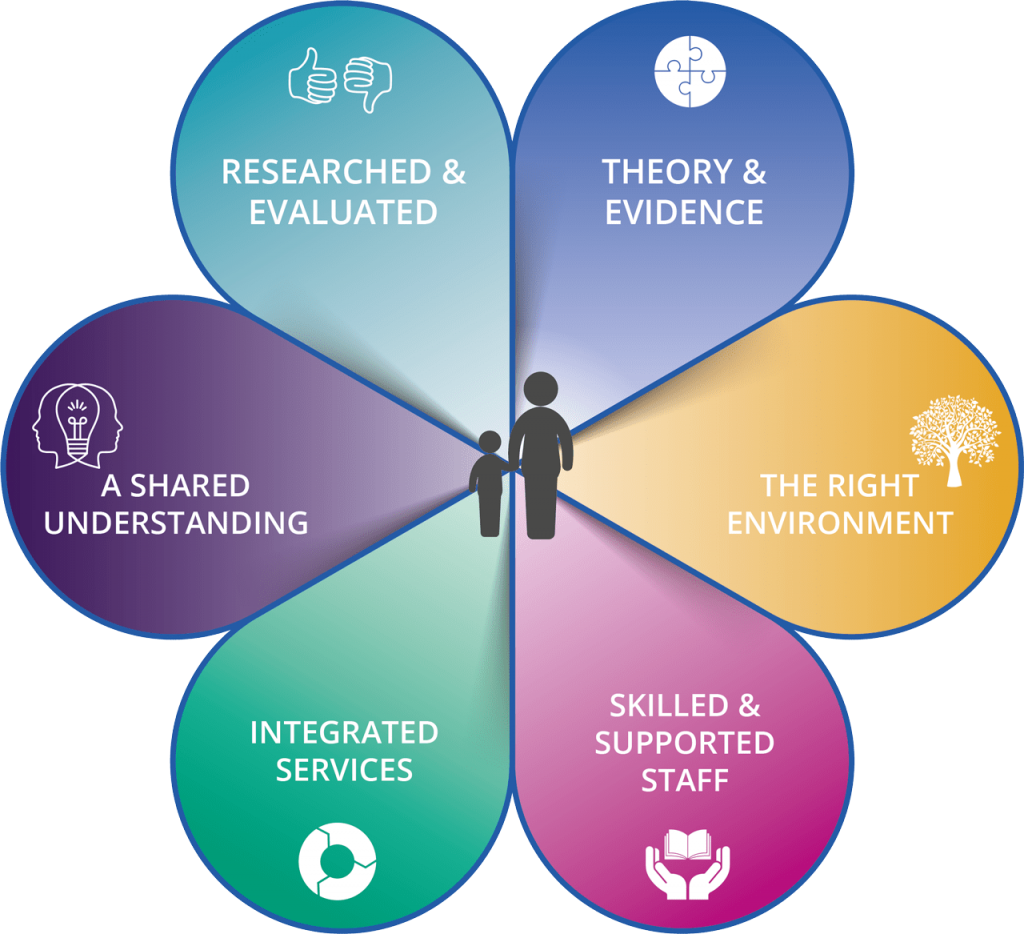Across Kibble, our practice is becoming increasingly therapeutic and trauma-informed.
Our research shows that many of our young people have experienced adverse and potentially traumatic events in their lives. It is therefore fundamental that we create safety, connections and supports to help children cope with the significant challenges that they face.
The model is designed to help us deliver therapeutic, trauma-informed services in an accountable and authentic way. It has been rolled out in phases across our services, beginning with our Early Years services in 2020, before being embedded across our Safe Centre, School Care Accommodation, Fostering and Community-based services.
Kibble’s Therapeutic Model: Seven essential elements

1. The child and our relationship with them are at the centre
We believe that the most powerful action we can take is to build relationships with children. Our primary goal is to build real connections that are ultimately healing. This idea is at the core of social pedagogy and it drives all of the work we do.
2. Theory and Evidence Based
We are continually learning and use the ideas and developing science to help us continually improve. We want to stand on the shoulders of giants and use the evidence, so we care for children in a way that is going to work.
3. The Right Environment
The space we live in has a significant effect on our wellbeing. We are continually learning about how nature, colour, light and flow in a space can make a difference to someone. We want to use this evidence to create physical environments that are in themselves therapeutic and help people thrive.
Further, creating safe psychological environments is essential to all that we hope to achieve in Kibble.
4. Skilled and Supported Staff
Looking after children is not easy, nor should it be if we aim to provide the best care we can. We therefore focus on providing skills and support for our staff.
Skills: We want our staff to have knowledge and skills that enable them to care for young people to the best of their ability. Relationships are key to progress but sadly that isn’t always enough. We aim to provide our staff with the knowledge to understand our children and the skills they need to care for them.
Supports: The last thing our children need is a stressed-out or struggling adult – we need to look after ourselves to look after others. We have created supports for staff that help them be what young people need them to be. This includes regular reflective space with a trained mental health professional.
5. Integrated Services
Kibble has worked hard to integrate our services, but we understand that there is always more to do. Children and young people need consistency from all the adults that care for them in their home or house, education and in therapy too. We have regular therapeutic meetings to make sure our services are regularly communicating and sharing decision making.
6. A Shared Understanding
To achieve consistency for young people we need a shared understanding of them and their behaviour. We try to make sure that everyone around the child including care, education, therapy and social work have the same understanding of a child that is rooted in attachment, trauma and child development.
7. Researched and Evaluated
We have a duty to know what works and what doesn’t. To do this we need objective and robust research. That’s why Kibble has employed a researcher and piloted a research project in our early years’ services that evaluates and explores the work that we do.


